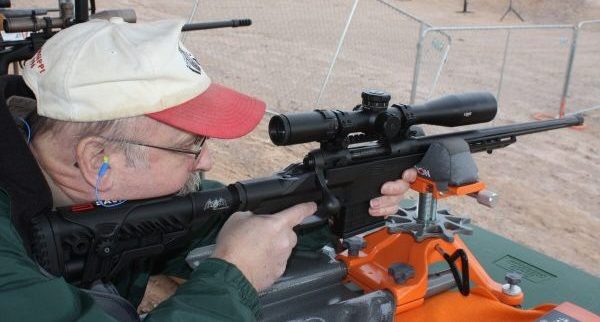
A Kitsap County, Washington Superior Court judge will hold a hearing Friday to determine whether a request by the county government for a permanent injunction against further operation of the 90-year-old Kitsap Rifle and Revolver Club (KRRC) should be granted.
It’s the latest and possibly last chapter in a battle that has been going on for several years, although as the saying goes, “It ain’t over ‘til the fat lady sings.”
A “show cause” hearing is scheduled at 11 a.m. before Judge Jay B. Roof.
KRRC was, according to a brief history, formally organized on Nov. 11, 1926, known in those days as “Armistice Day.” Ironically, that is also the date Washington became a state back in 1889.
When the club was established, it was literally in the “middle of nowhere” on the Kitsap Peninsula, which splits Puget Sound from Hood Canal. But, as noted in a story in the Kitsap Daily News in October 2012, Kitsap District 1 Commissioner Robert Gelder then observed that the area around the club’s acreage had been developed and people were moving in. A lot of them, as it turns out, didn’t care for the noise of gunfire, and there were complaints about bullets leaving the range and landing on, or in, nearby property and homes.
KRRC’s Marcus Carter told Liberty Park Press that this saga began back in 1993, when the club first learned that the county was apparently planning a large park development and the range property was part of that plan. Eventually, the club purchased the land, but it’s been an ongoing battle since about 2009 involving allegations about improvements without permits, noise and projectiles leaving the range.
The membership has dwindled because of this, from a high of about 1,200 down to the current 200-300 active members, Carter estimated.
What is happening to the KRRC is not unusual. Over the years, gun clubs and shooting ranges with similar beginnings to the Evergreen State facility have faced the same problem: Human encroachment. The majority of these clubs were originally constructed in areas often miles away from populated areas at the time.
But time passed and people spread out. In some cases, real estate developers or dealers may not have bothered to mention to their clients that gun ranges existed nearby, eventually resulting in conflict between shooters who were there first and neighbors who objected to the noise.
Also, local governments may have adopted noise ordinances or changed local zoning, which contributed to such conflicts. Carter suggested that people buying homes in rural areas should do “due diligence” to see what may be in the area.
Whether the club wins or loses Friday, this battle really isn’t over, Carter indicated. However, KRRC does not have a big bank account to keep up such a fight much longer.
Related:
2A Victory: North Dakota Governor Signs ‘Constitutional Carry’ Bill
Seattle Gun Tax Revenue Falls Far Short of 2015 Prediction